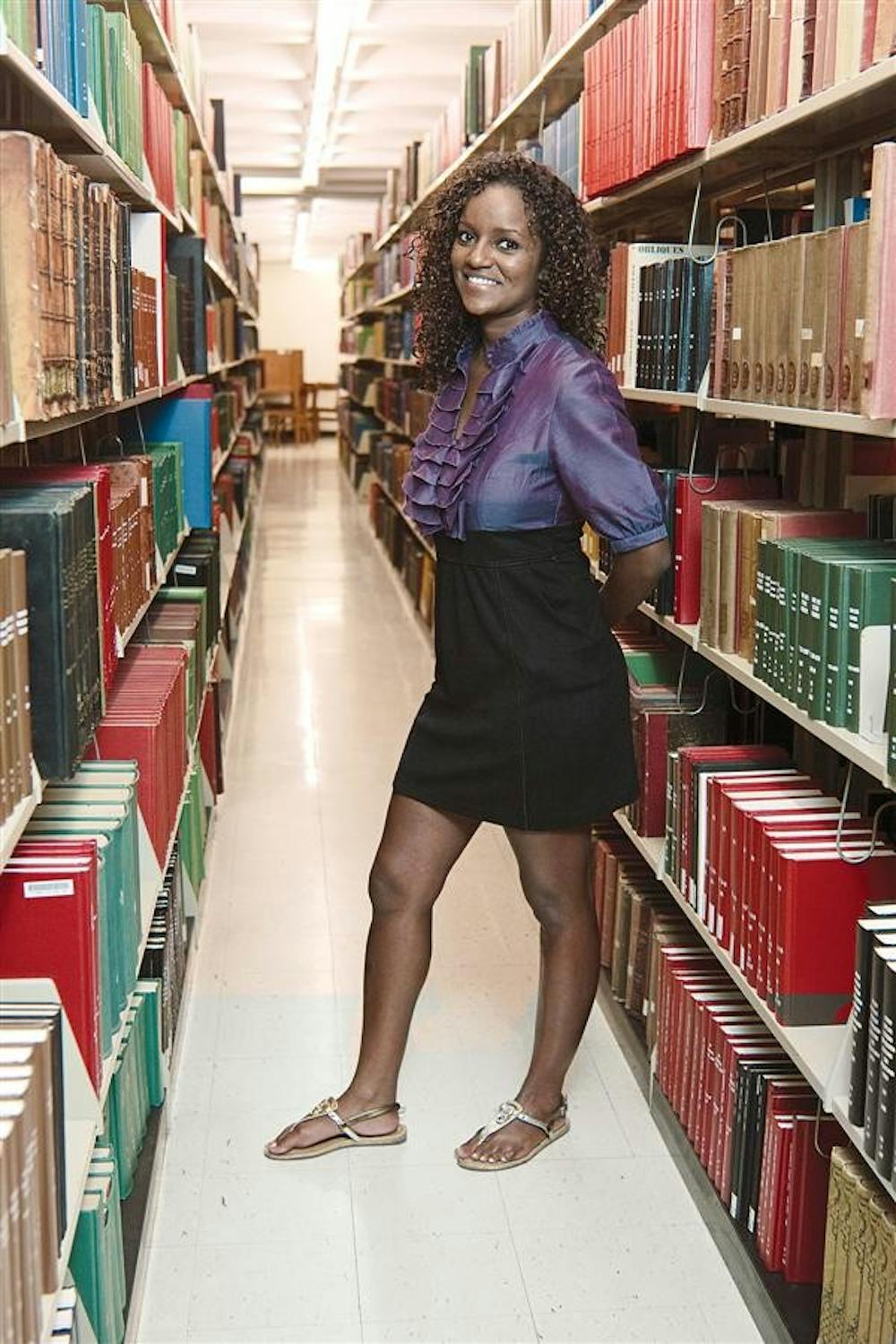Seventeen years ago, in Addis Ababa, Ethiopia, Cheryl Carter-Shotts stood before a group of children. When they spotted the American woman, almost all of them begged for food and money. One girl sat alone. Carter-Shotts took a picture of that girl, returned to America, and kept the photo on her desk for a year. Then, she returned to Ethiopia to look for the girl who didn’t beg.
The girl was IU junior Kelemwork Tariku-Shotts, now a finance and international business major. She was 6 when Carter-Shotts, now her adopted mother, found her.
“The only reason why they brought me to America was I was extremely sick,” Tariku-Shotts says. “It’s really weird to say, but I was pretty much going to die soon.”
But she didn’t. Instead, Carter-Shotts took Tariku-Shotts to the United States, where she received medical attention. Now 23 years old, Tariku-Shotts is trying to help African kids get the same care she did.
She spent this past summer in Uganda volunteering for a humanitarian aid organization started by Carter-Shotts’ adoption agency, Americans for African Adoptions.
“We started a project in Uganda that worked with displaced women and children working in a rock quarry,” Tariku-Shotts says. “A lot of the children were orphans, so we took them into our agency to find families for them in America.”
She used what she learned from her studies to serve as the liaison between the families, lawyers, and agency.
“What we’re trying to do in Uganda is we’re trying to set up a place for women and children to learn trades, learn skills, and try to sustain themselves and not depend on foreign aid,” Tariku-Shotts says. “Such huge organizations try to throw money or try to throw food, but it doesn’t do anything to solve the problem. It just perpetuates it.”
Tariku-Shotts knows what it’s like to live in a developing country. She still keeps in touch with her family in Ethiopia and has returned almost every other year since she was 12.
Tariku-Shotts says she wants to work with nonprofit organizations in the future so she can help people who may not be as lucky as she was the day Carter-Shotts found her.
“I can only imagine what would have happened, but I try not to live in the ‘what if,’” she says. “It’s literally one of the biggest motivators in my life now, to succeed for my family back home and for the chance I had that so many don’t.”
A photo on a desk saved her life. Now she wants to change the picture of poverty.
The visionaries: students of innovation

Get stories like this in your inbox
Subscribe





